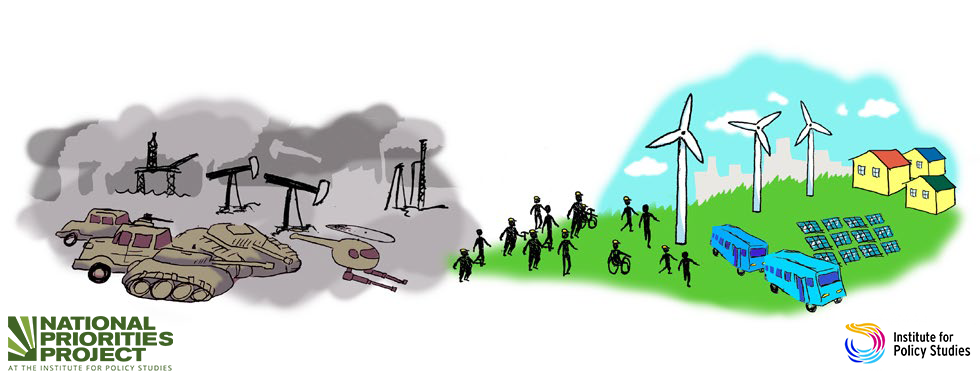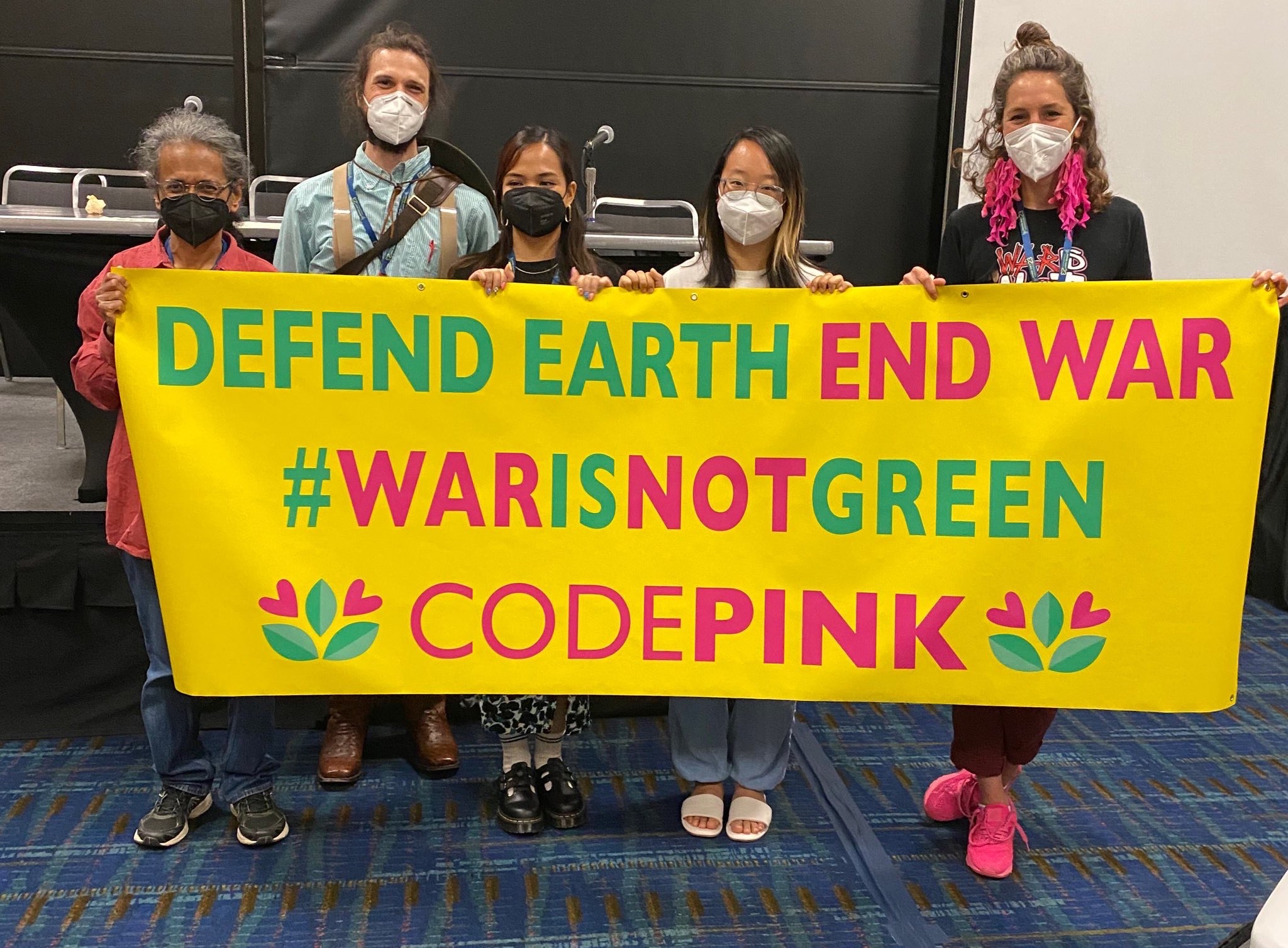Climate and Militarism Converges at Power Shift 2023
By
Alliyah Lusuegro
Posted:
|
Climate Change,
Military & Security

Bvlbancha, also known as New Orleans, is the Chata and Yama word for “Place Where Many Languages Are Spoken” or “Place of Many Tongues,” and where I was earlier this month for the Power Shift 2023 Convergence.
Power Shift centers collective youth power in the climate movement to create a just future for all. The climate movement encompasses various spaces, including public health, labor, food security, and social justice, and this annual event merges the worlds of academia, art, organizing, policy, research, and more together. A coming together, a convergence, felt right for Power Shift, and Bvlbancha felt like it was the right place to be.
At this gathering of people and movements, I was proud to co-lead a session to begin to untangle the inseparable links between militarism and the climate crisis.
Red Hill, Palestine, and Guam are three of many places that are experiencing the losses and toxic legacies of military infrastructures. A powerful video compilation featuring prominent climate activists and community members in these three places reminded us that, at the core of the climate crisis, we are dealing with people’s homes and lives. These stories reminded me of my homelands in the Philippines, increasingly devastated by typhoons and the push for reinstallation of overseas bases, and the ghost of military occupation lingering in so many nations.
Also principal in the connection between militarism and climate are immigration and border enforcement, as well as policing and mass incarceration. Land defenders have been criminalized and killed for protecting their homes and green spaces. Military grade equipment gets passed down to local police forces through the government 1033 Program. Hundreds of millions people have been displaced and will continue to lose everything due to climate change and wars, and yet the ones who instigate these wars and pollute our air, soil, and waters continue to turn migrants away.
Money is power, so we had to talk about it. The U.S. is the largest military spender in the world, greater than roughly the size of the next ten largest military budgets combined. Military spending accounts for over half of the federal government’s annual discretionary budget in any given year, and this year is no different. Even more, our latest Tax Day analysis shows that the average taxpayer paid $1,087 to Pentagon contractors in 2022, which is 4 times the amount as what went towards K-12 education at $270. Too much of taxpayer dollars goes to the military and should instead be reprioritized toward social needs like education, healthcare, and real people-driven climate solutions.
In the face of all this, it was heartening to see my co-presenters bring direct action, organizing, and discourse shift to the conversation.

CODEPINK’s War Is Not Green Campaign aims to join the environmental justice and peace movements, educate about the military “bootprint,” and challenge and disrupt institutional ties to the military.
Dissenters is a youth-led movement organization that aims to defund war profiteers and reinvest in regenerative spaces, demonstrated by their divestment campaigns and direct action on the streets and college campuses.
Our colleague from Veterans for Peace brought his veteran story and doctoral research to the forefront, advocating for a shift in the way military language is in itself a weapon: climate change, when posed and discussed amongst our leaders as a security threat, can run the risk of being met with an aggressive, militaristic response.
Convenings like Power Shift make space for many languages, many perspectives, many ideas, many passions, and many of a call to action. Power Shift 2023 enlivened me to lean on the power of youth and community as we continue to work in dismantling the military industrial complex and in dreaming and enacting a just climate future.